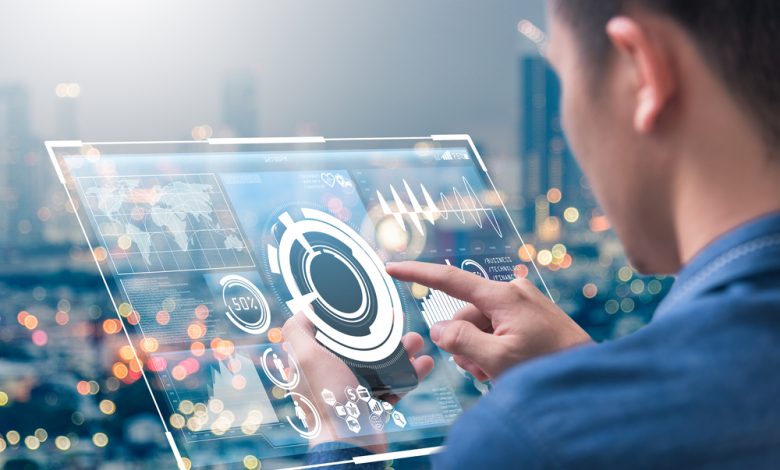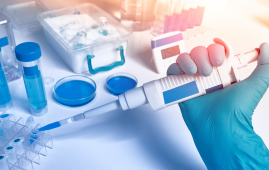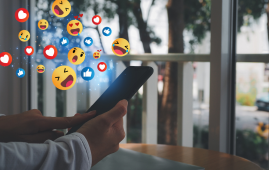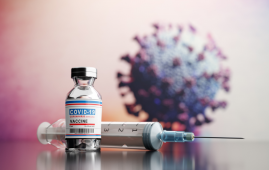

Smartphones, the internet, smart environment, the development of artificial intelligence, and digital technologies – all these help to obtain and analyze an enormous amount of data about human health.
Some analysts predict that in the future, artificial intelligence will do 80% of medical work instead of doctors. But so far we are not talking about a complete replacement of a person. On the contrary, AI is a new and potentially most powerful healing tool.
How AI Is Revolutionizing Healthcare?
Smartphones And Trackers For Medical Surveillance
Almost 4 billion people use smartphones. And almost all have a suite of sensors that can be used effectively to monitor their health. Of course, gadgets were not created for this, but the pandemic has shown that, in extreme circumstances, smartphones are quickly turning into preventive medicine. This happened in South Korea, as well as in China, where almost 1 billion people joined the contact tracing program with COVID-19 carriers.
The second most popular device after smartphones is occupied by specialized devices – wearable sensors like fitness trackers. Now, one in five Americans regularly uses such devices. And public and private employers in the United States have used trackers for several years in their employee health programs.
Example:
If a person walks a certain number of steps per day or visits the gym at least 6 times a month, they may get a cash bonus, and if they do not, they will pay a fine. However, such programs take root with a creak and cause protests from workers.
Digitalization Of Home Medical Equipment
In addition to wrist trackers, smart belts, and chest straps, there are devices for the eyes and ears. Any wearable item (ring, earrings, sneakers, T-shirt, etc.) can be turned into a smart device that will monitor your health using next-generation sensors.
The goal of the most ambitious biomedical startups is to build sensors into the human body that will measure basic chemical indicators and report abnormalities to the user or his doctor in real-time.
In this sense, any home medical device – from a thermometer and scales to a tonometer and a stethoscope – connected to the Internet and transmitting data to the treating party becomes a telemedicine device. These devices are extremely useful for people with substance addiction. Doctors can monitor the changes in their body and choose suitable alcoholism treatment options for each patient.
Smart Environment As Discreet Surveillance
The wearing of sensors and trackers is entirely dependent on patient discipline and awareness – and this is a serious problem. People forget to charge and put on the device, lend it to friends, or just get tired of wearing it. The coronavirus pandemic made people think about the threat to others who hide their disease.
The creation of an environment with built-in biosensors does not require any special efforts from a person to collect data. The smart toilet, developed by Stanford scientists, identifies a person by fingerprints and a unique pattern of the anus.
These smart toilets are part of the smart home concept for the near future. But digital toilets will have to wait. The voice assistants installed in hundreds of millions of homes around the world are already being used for health diagnostics.
Psychiatric Diagnosis By Voice
Amazon, one of the leaders in the market for AI voice assistants, patented technology for diagnosing health by speech back in 2018. The company’s patent states that “coughing, sniffing, or crying may indicate that the user has a physical or emotional disorder.”
With the definition of colds and respiratory diseases (hello, coronavirus!), everything is more or less clear. If a person sneezes and coughs unusually, perhaps he is ill and should see a doctor. But technology can already recognize emotional problems.
Example:
Amazon’s Alexa for psychological diagnostics takes several parameters: pitch, rhythm, pronunciation, tremor, and harmony of the user’s voice. To this data, Alexa connects behavioral history (data from searches, purchases, etc.) and contextual history (keywords and type of Internet pages visited). Based on this information, the AI can detect depression or suicidal tendencies.
The Future Of Medicine: Precision And Personalization
A promising innovative approach to health – precision medicine: information about the human genome is compared with all other data about his health. One of the leaders in this area is Microsoft. A company that has specialized in operating systems for computers for 40 years is now feeding gigantic amounts of data about the human genome to AI.
At Microsoft Project Hanover, machine learning is actively used in the fight against cancer and drug development. Knowledge about the genetic code of a particular patient not only helps to make diagnoses more accurately but also to select a more appropriate treatment.
Today, medicine is not accurate. For the 20 most popular drugs in the United States, 80% of patients do not respond well. The development of big data heralds a new era of precision medicine when treatment will become more effective because it will be selected for each patient individually.
Privacy Is A Problem For The Development Of Telemedicine
People use telemedicine services, wearable sensors, and specialized applications because:
- It’s easier to focus on well-being and disease prevention.
- This way you can better understand the state of your health.
- Access to medicine is becoming more convenient.
However, every fifth user does not use computers and digital devices for treatment and health issues, because he doubts their effectiveness. And many refuse wearable devices and digital health services because they want to keep their data safe.
Final Words
Though technology is revolutionizing the medicines and health industry, it is also increasing other concerns, such as security. The Facebook scandals eroded trust in tech companies, and people are becoming more attentive to their personal information’s security. And although the market for wearable devices is expanding rapidly, experts believe that in the past couple of years, growth has stalled precisely because users are concerned about the safety of their data.
more recommended stories
 ChatGPT Excels in Medical Summaries, Lacks Field-Specific Relevance
ChatGPT Excels in Medical Summaries, Lacks Field-Specific RelevanceIn a recent study published in.
 Study finds automated decision minimizes high-risk medicine combinations in ICU patients
Study finds automated decision minimizes high-risk medicine combinations in ICU patientsA multicenter study coordinated by Amsterdam.
 Study Discovers Connection Between Omicron Infection and Brain Structure Changes in Men
Study Discovers Connection Between Omicron Infection and Brain Structure Changes in MenA recent study in the JAMA.
 Advancing COPD Prognosis: Deep Learning Models
Advancing COPD Prognosis: Deep Learning ModelsResearchers conducted a meta-analysis in a.
 4 in 1 Test for Swine Flu, COVID-19, RSV, and Influenza
4 in 1 Test for Swine Flu, COVID-19, RSV, and InfluenzaIn the United Kingdom, the first.
 Innovative Zika Virus Defense: Needle-Free Vaccine Patch
Innovative Zika Virus Defense: Needle-Free Vaccine PatchTo protect individuals from the potentially.
 Social Media Impact on Mental Health Treatment
Social Media Impact on Mental Health TreatmentAccording to research, social media might.
 Unveiling the Impact of Whole Grain Consumption on Slowing Memory Decline in Black Populations
Unveiling the Impact of Whole Grain Consumption on Slowing Memory Decline in Black PopulationsConsuming a diet rich in whole.
 $1 Cancer Treatment: Engineered Bacteria Breakthrough
$1 Cancer Treatment: Engineered Bacteria BreakthroughWhat if a single one-dollar dose.
 Pfizer COVID Booster: Half-Dose, Reduced Side Effects
Pfizer COVID Booster: Half-Dose, Reduced Side EffectsIn a recent report in The.

Leave a Comment